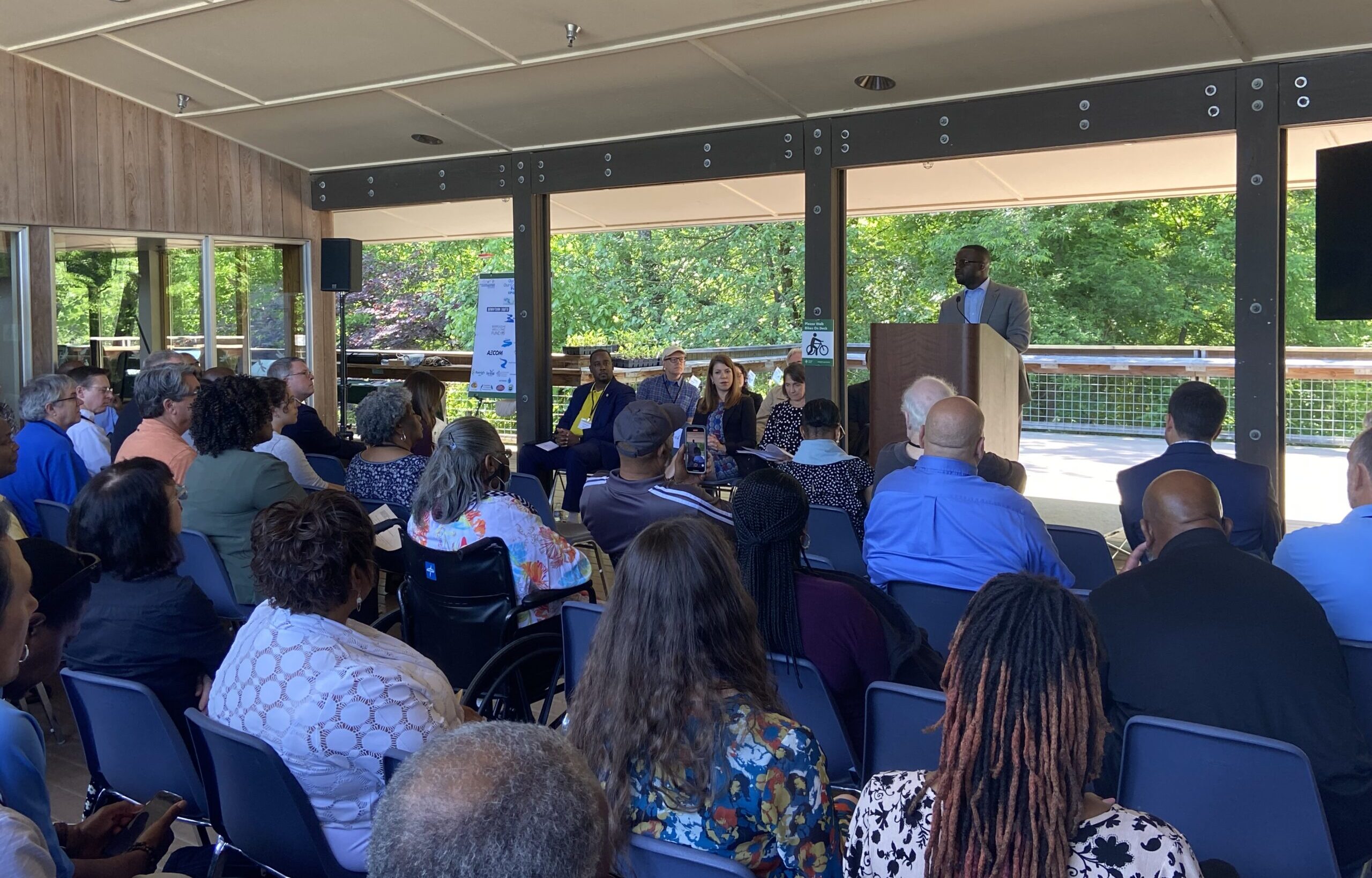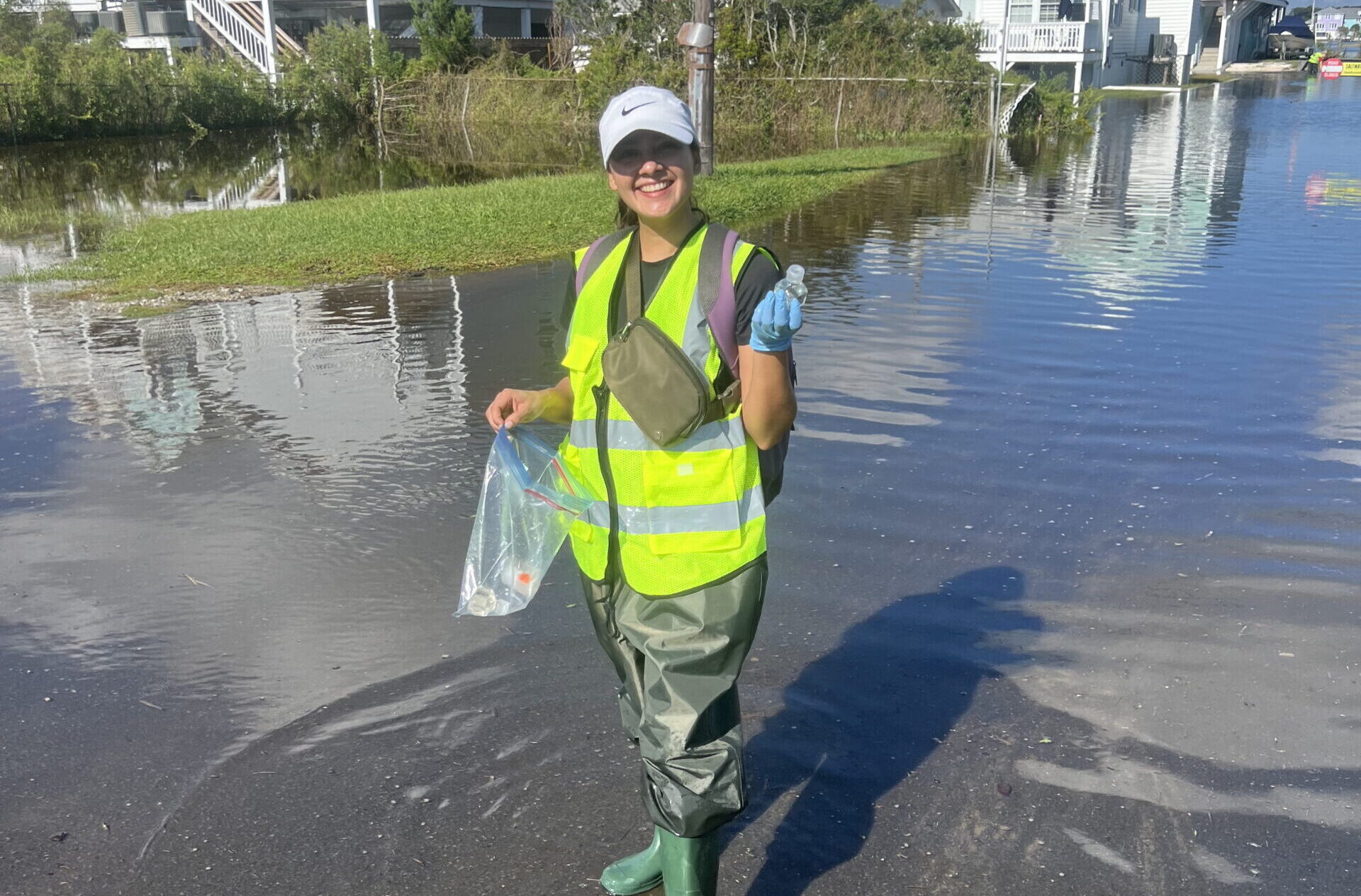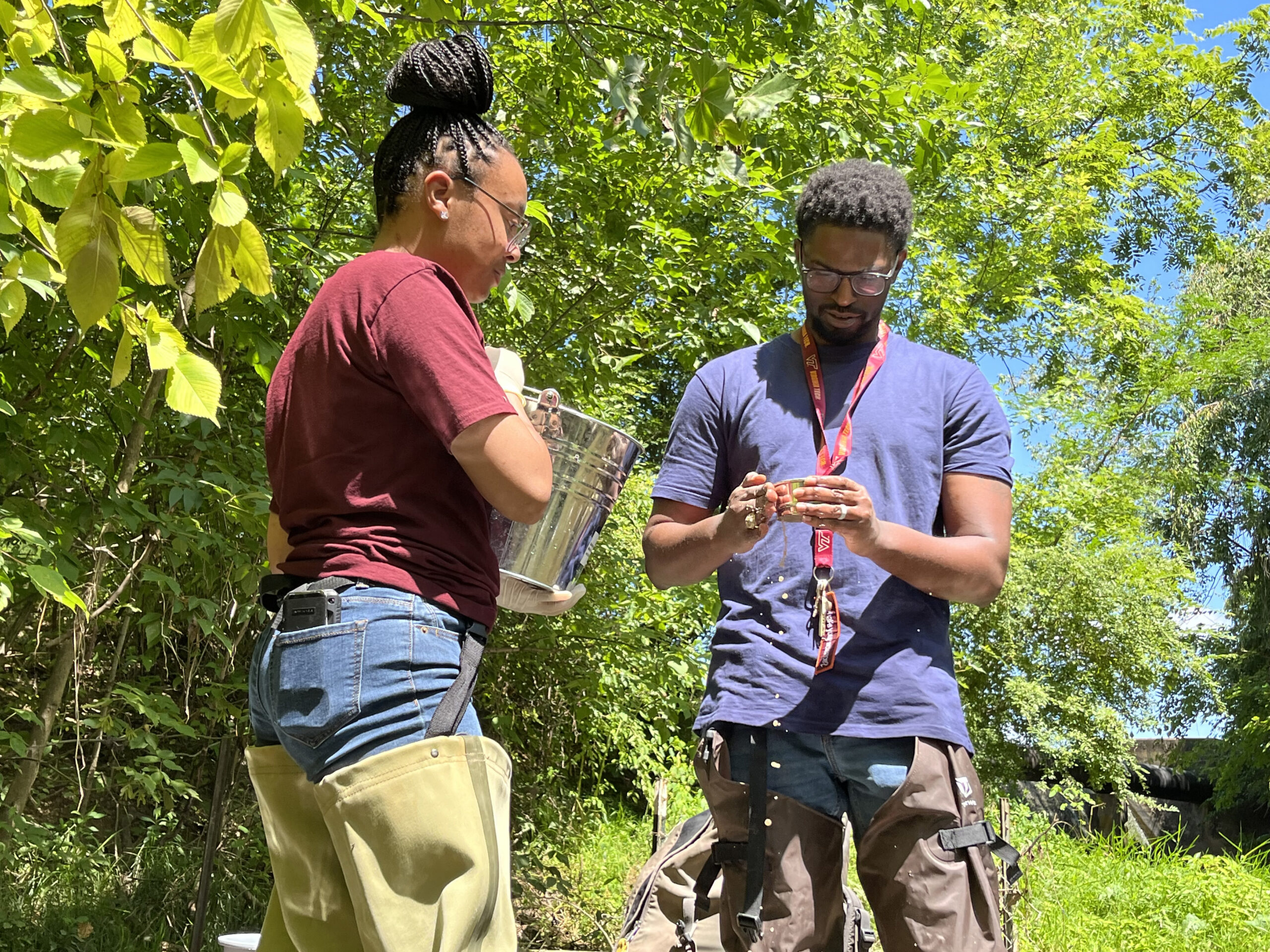Walnut Creek in Raleigh Joins Urban Waters Federal Partnership

North Carolina Water Resources Research Institute (WRRI) is proud to be a partner in the collaborative work to address flooding, water quality issues, and related environmental injustices in the Walnut Creek watershed. The EPA’s official announcement designating Walnut Creek as an Urban Waters Federal Partner was made on Friday. EPA Press release follows.
———
Urban Waters Federal Partnership announces new location in Raleigh, N.C. bringing partnership and resources together to help restore Walnut Creek
April 21, 2023
Contact Information: EPA Press Office (press@epa.gov)
WASHINGTON (April 21, 2023) – Today at an event in Raleigh, North Carolina, the U.S. Environmental Protection Agency (EPA), the U.S. Department of Agriculture (USDA), and the U.S. Department of the Interior (DOI) announced the Walnut Creek watershed as the 21st Urban Waters Federal Partnership location. With this designation, 15 federal agencies will work collaboratively with local partners to restore the Walnut Creek watershed and mitigate flood risk, support healthy people and ecosystems, enhance recreational opportunities, strengthen local economies, and create jobs. Today’s announcement also supports President Biden’s EJ Strong Initiative by making a tangible difference in a community with legacy environmental justice concerns.
“The Urban Waters Federal Partnership embodies several EPA priorities – protecting vital water resources, working with partners to address community needs, and advancing progress toward an equitable water future for all Americans,” said EPA Assistant Administrator for Water Radhika Fox. “With this designation, EPA will help improve water quality and deliver multiple benefits to the residents of Raleigh and Wake County, North Carolina in support of President Biden’s commitment to clean water and environmental justice.”
“EPA is pleased to welcome Walnut Creek as an Urban Waters Federal Partner and supports this innovative partnership that reconnects urban communities with their watershed while encouraging stewardship and incentivizing local solutions in today’s environmental and public health challenges,” said Region 4 EPA Administrator Daniel Blackman. “This is a great opportunity to have EPA and the partners help the local community improve water quality, restore wetlands and protect wildlife while creating additional recreational opportunities for the surrounding areas.”
“I’m thrilled that the Walnut Creek Watershed has been accepted to join the EPA’s Urban Waters Federal Partnership,” said Congresswoman Deborah Ross.“ I have supported the Walnut Creek Wetland Center since its creation more than a decade ago, and this partnership is a testament to the spirit of the community and the enduring legacy of Dr. Norman Camp. This critical program will help revitalize this watershed and mitigate flooding that has disproportionately impacted communities in southeast Raleigh for far too long. It is past time that we address this environmental issue and ensure our communities are resilient to the growing threats of climate change.”
With this designation, the Urban Waters Federal Partnership program will engage with the Walnut Creek stakeholders to leverage federal programs and funds to help advance the local goals and priorities identified in their Watershed Action Plan. The Plan identifies and prioritizes areas for improvement projects and calls for developing implementation plans and tracking water resource improvements across the entire Walnut Creek Watershed.
“The Department of the Interior has long championed the role that urban rivers can play in providing opportunities for diverse communities to connect with nature, develop additional recreational opportunities, and invigorate local economies,” said DOI Assistant Secretary for Water and Science Tanya Trujillo. “We are proud to empower communities with expanded resources and science to help establish climate resilience and equity in urban waterways.”
“The USDA Forest Service is proud to support the expansion of the UWFP to include the Walnut Creek Watershed in Southeast Raleigh, N.C.,” said Beattra Wilson, Assistant Director of Urban and Community Forestry at USDA Forest Service. “The placement of an UWFP Ambassador in the region to provide on-the-ground leadership and community engagement coordination is a proven model that will ensure that strategic investments made to improve the ecological function and community access to forested watershed benefits are inclusive, equitable and sustainable.”
“Today’s recognition is proof that working together across sectors, across government, across communities can bring real change,” said North Carolina Department of Environmental Quality Secretary Elizabeth S. Biser. “We all share a common goal of protecting the water quality of Walnut Creek and protecting the people who live alongside it.”
“The N.C. Forest Service Urban and Community Forestry Program’s charge is to enhance the ecosystem services and benefits trees provide to our communities,” said Andrew Pleninger, head of the N.C. Forest Service Urban and Community Forestry Program. “The Walnut Creek Watershed Action Plan works to achieve those objectives and we are pleased to contribute funding for the Urban Waters Ambassador. A successful community project must include and engage the people that live in the community in the planning and implementation processes and the Urban Waters Ambassador working in the community helps ensure this will happen.”
“Carolina Wetlands Association is proud to have been a partner in the application for the designation of Walnut Creek as an Urban Waters of the US,” said Rick Savage, Executive Director of the Carolina Wetlands Association. “We feel strongly that this designation will lead to many improvements along the watershed that will have noticeable benefits to the communities that depend on the watershed.”
In July 2021, Partners for Environmental Justice and the Carolina Wetlands Association, along with the U.S. Geological Survey serving as the federal lead, submitted a proposal to join the Partnership. The proposal identified the key local, state, federal, and non-governmental partners and stakeholders, collectively known as the Walnut Creek Watershed Action Team. The team is working to restore the Walnut Creek watershed, reconnect the community to its waterway, and alleviate flooding challenges the community faces.
With funding from the USDA Forest Service, The Conservation Fund, and the North Carolina Forest Service, Partners for Environmental Justice will hire a local coordinator, an Urban Waters Ambassador, to lead local, state, federal, non-profit and academic partners in the development and implementation of projects that achieve the goals of the Watershed Action Plan.
To learn more about the Walnut Creek Urban Waters Partnership, visit: https://www.epa.gov/urbanwaterspartners/walnut-creek-urban-waters-partnership
To learn more about collaborative efforts to uplift urban waters and their surrounding communities, visit: https://www.epa.gov/urbanwaterspartners
- Categories:


